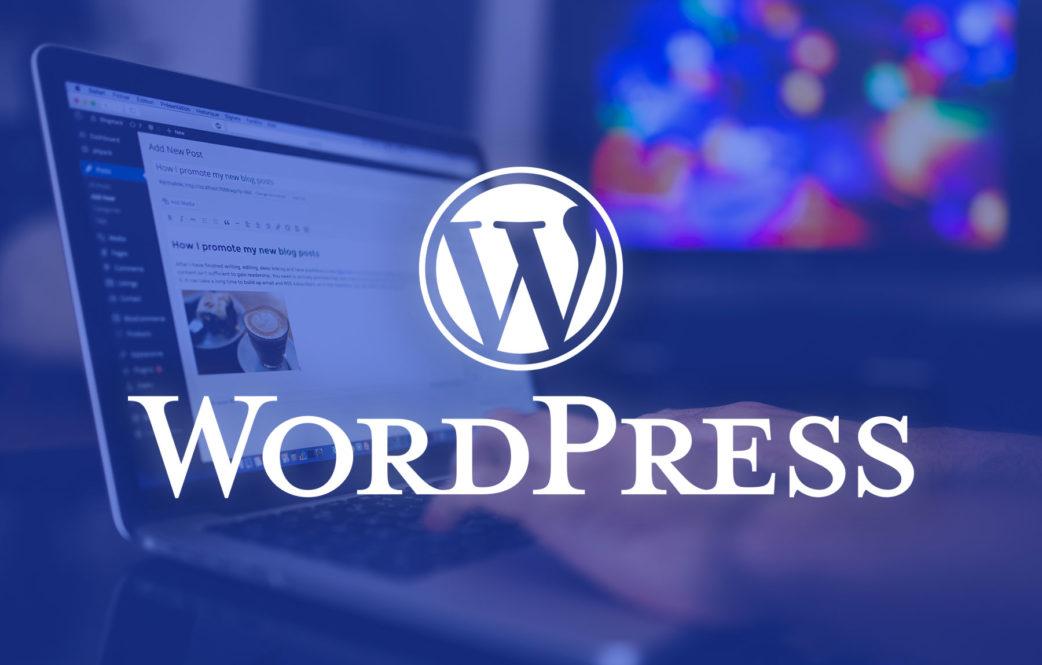Are you ready to take your online store to the next level? Whether you’re just starting out or looking to revamp your existing site, hiring the right WordPress eCommerce developer is crucial for your success. With countless options out there, it can feel overwhelming to find the one who understands your vision adn can transform it into a reality.But don’t worry—we’re here to help! In this article, we’ll walk you through the key steps to identify, evaluate, and ultimately hire the best developer for your eCommerce needs.With the right partner by your side, you’ll be well on your way to creating a stunning, user-friendly online shop that captivates customers and drives sales. Let’s dive in and set you on the path to eCommerce success!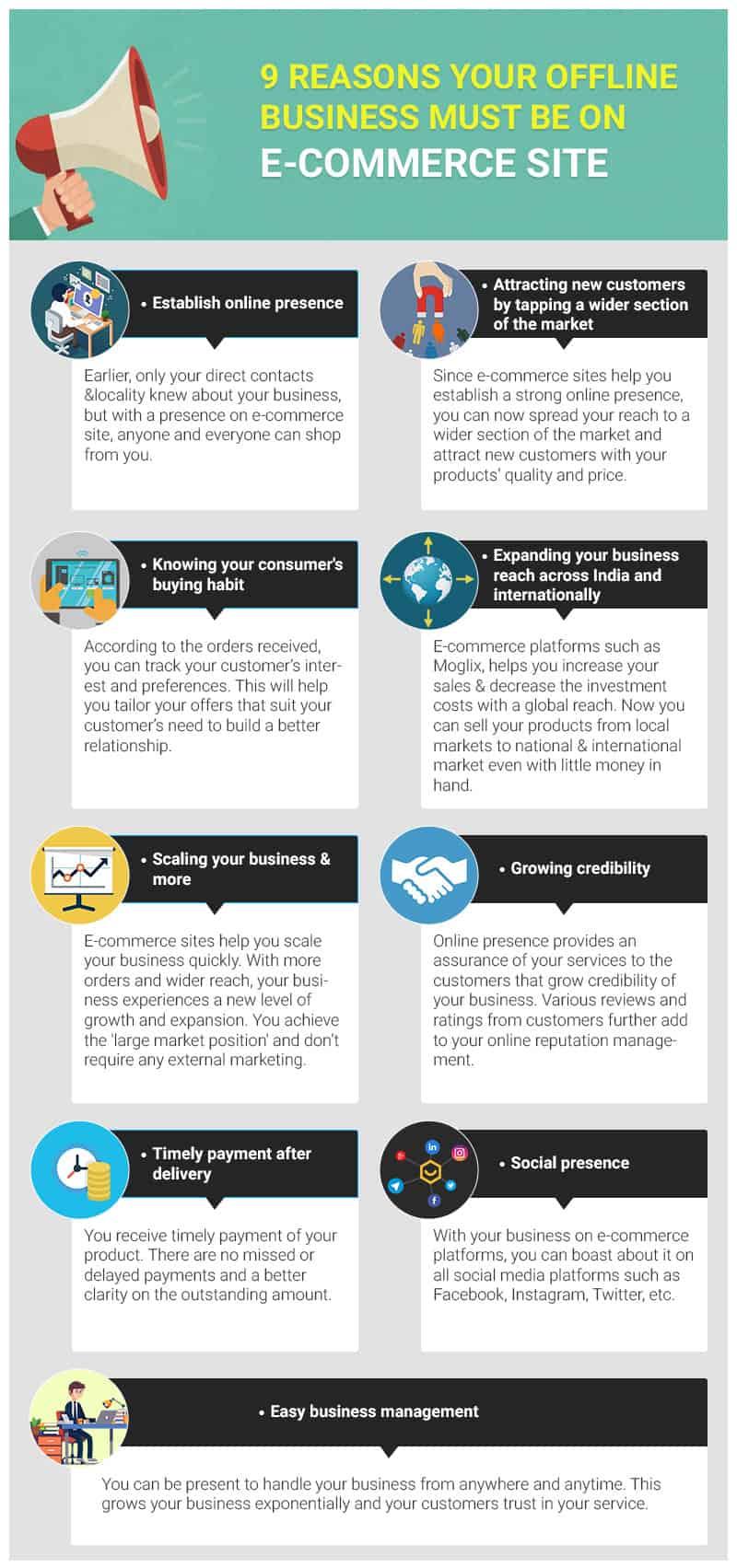
Understanding Your eCommerce Needs before you Start Hiring
Before you embark on the journey of hiring a WordPress eCommerce developer, it’s crucial to first understand your specific eCommerce needs. This clarity will not only streamline the hiring process but also ensure you select a developer who aligns perfectly with your business goals. Start by considering the core functionalities your online store must have. Think about:
- Product Management: How many products will you be selling? Do you need features for inventory management or bulk uploads?
- payment Gateways: Which payment options do you wish to offer your customers? Consider integration with services like PayPal, Stripe, or other local payment processors.
- User Experience: What type of layout do you envision? Is it essential to have a mobile-responsive design?
- SEO capabilities: Do you need the site to rank well on search engines? A developer with SEO expertise can greatly aid in this.
Next, think about the level of customization you require. Many eCommerce platforms come with templates, but if your brand is looking for a unique identity, getting a developer who can create custom themes and plugins for WordPress is essential. Ask yourself:
- Will your store require specific functionalities that standard themes can’t provide?
- Do you need advanced features like subscription services, membership areas, or custom checkout processes?
Another aspect to consider is the scalability of your eCommerce site. As your business grows, your website should be able to accommodate increased traffic, additional products, and more complex operations. make sure your potential developer has experience with:
- Performance Optimization: How will they ensure your site remains fast and responsive as you grow?
- Security Best Practices: What measures do they implement to protect sensitive customer data?
Lastly, don’t forget about post-launch support. Once your site is live, you’ll need ongoing assistance. Inquire about:
| Support Type | Details |
|---|---|
| Technical Support | Availability for bug fixes and updates |
| SEO Maintenance | Regular updates to keep your site optimized |
| Content Management | Assistance with adding new products or blogs |
By thoroughly analyzing your eCommerce needs, you will not only make informed decisions during the hiring process but also set a solid foundation for a triumphant online store. An understanding of your requirements will lead you to the right developer who can turn your vision into a reality.
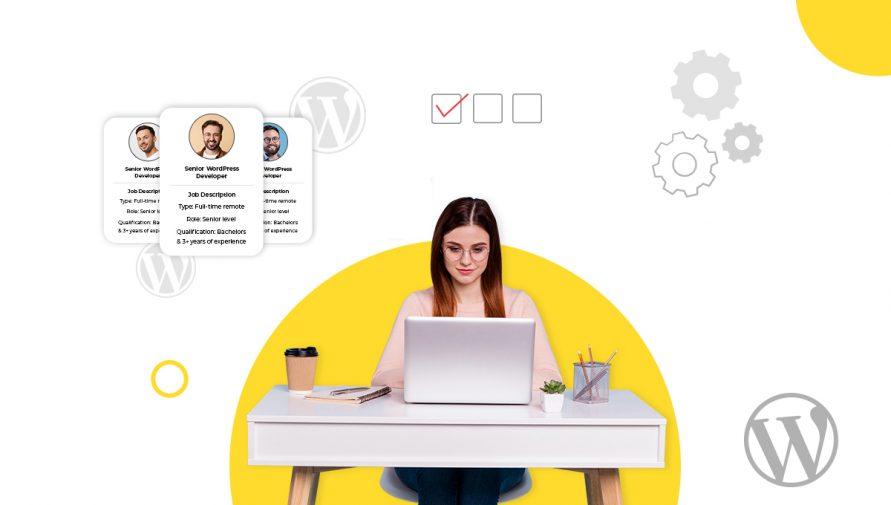
identifying Key Skills and Experience in WordPress Developers
when searching for a top-notch WordPress eCommerce developer,it’s crucial to pinpoint the skills and experience that will elevate your online store. A successful developer should possess a blend of technical expertise and creative capabilities, enabling them to design and implement an engaging user experience.
Here are some key skills to look for:
- Proficiency in WordPress: A deep understanding of WordPress, including custom themes and plugins, is essential.Look for developers who can demonstrate thier ability to customize and extend the platform.
- eCommerce Experience: Familiarity with eCommerce plugins like WooCommerce is vital. A developer should know how to set up payment gateways, manage inventory, and optimize user journeys for conversions.
- Responsive Design: As mobile commerce continues to grow, your developer must ensure that your website is fully responsive and provides a seamless experience across all devices.
- SEO best Practices: Understanding the basics of SEO can greatly benefit your eCommerce site. Look for developers who can implement SEO-friendly practices from the ground up.
- security Knowledge: A solid grasp of web security practices is non-negotiable. The developer should implement measures to protect sensitive customer data and maintain the integrity of your site.
Experience also plays a critically important role in a developer’s ability to deliver quality work.Consider asking potential candidates about their past projects:
| Project Type | Skills Utilized | Outcome |
|---|---|---|
| Online Retail Store | WooCommerce, Payment Integration | Increased sales by 40% in 6 months |
| Subscription Service | Membership Plugins, Custom Features | Boosted user retention by 30% |
| Portfolio Site | Custom Themes, Responsive Design | Improved engagement time by 50% |
Moreover, soft skills shouldn’t be overlooked. A developer’s ability to communicate effectively and work collaboratively can considerably impact project success. Evaluate their problem-solving capabilities and responsiveness to feedback during the hiring process.
Lastly, consider their portfolio. A diverse range of previous work not only signifies experience but also showcases their ability to adapt and innovate. When reviewing portfolios, pay attention to the quality, user experience, and whether their style aligns with your vision.
Exploring the Difference Between Freelancers and Development Agencies
When deciding between hiring a freelancer or a development agency for your WordPress eCommerce project, it’s crucial to understand the nuances that differentiate these two options. Both have their unique sets of advantages and potential drawbacks, and recognizing these can definitely help you make an informed decision.
Freelancers ofen provide a more personalized touch. They tend to have a flexible working style and can adapt quickly to changes in project scope. Here are some key aspects of choosing a freelancer:
- Cost-Effectiveness: Freelancers usually have lower overhead costs, which can translate into more affordable rates for you.
- Specialization: Many freelancers specialize in specific areas of WordPress development, perhaps offering top-notch expertise in the particular aspects you need.
- Direct Communication: Working directly with a freelancer can facilitate faster decision-making and clearer communication.
On the flip side, development agencies come with a broader range of resources and skills. They often have a team of specialists who can handle various aspects of your project simultaneously. Here are some benefits of hiring an agency:
- Complete services: Agencies can provide a full suite of services from design to development to marketing, ensuring all components of your eCommerce site work cohesively together.
- Scalability: With a team at your disposal, agencies can easily scale your project, accommodating changes or increased workloads without compromising quality.
- Reliability: Agencies usually have established processes and protocols, which can lead to more predictable outcomes in terms of timelines and deliverables.
| Criteria | Freelancers | Development Agencies |
|---|---|---|
| Cost | Generally lower | Higher,but offers a range of services |
| Communication | Direct and personal | Formal,may involve multiple points of contact |
| Flexibility | Highly adaptable | Structured,may require more lead time for changes |
| Expertise | Specialized skills | Diverse skill sets across a team |
Ultimately,the choice between a freelancer and a development agency will depend on your specific needs and preferences. If you value personalized service and have a tight budget,a freelancer might be the way to go. However, if you’re looking for a robust solution with a team of experts, an agency could be more suitable. Consider your project’s scale, complexity, and long-term goals as you weigh your options. making the right choice can lead to a successful partnership and a thriving eCommerce site.
Evaluating Portfolios: What to Look for and Red Flags to Avoid
when evaluating portfolios of potential WordPress eCommerce developers, it’s essential to delve deep into their previous work. A strong portfolio is not just a collection of projects, but a showcase of their unique style, versatility, and problem-solving skills. Here are some key elements to consider:
- Design Quality: Look for visually appealing designs that enhance user experience. A good developer understands the balance between aesthetics and functionality.
- Responsiveness: Check if their projects are mobile-friendly. With a significant amount of traffic coming from mobile devices, responsive design is non-negotiable.
- Functionality: Make sure the sites they’ve developed demonstrate smooth navigation, fast loading times, and effective eCommerce features such as shopping carts and payment gateways.
- Customization: A competent developer should showcase their ability to customize themes and plugins to meet specific client needs. Look for unique solutions rather than cookie-cutter templates.
- E-Commerce Experience: Pay attention to portfolios that highlight experience in managing online stores, including product listings, inventory management, and customer service integrations.
However, while a polished portfolio is attractive, there are red flags to watch out for:
- Lack of Case Studies: If a portfolio lacks in-depth case studies, it may indicate that the developer has limited experience or is not willing to share their process and results.
- Outdated Designs: Be wary of developers whose portfolios feature outdated designs. The digital landscape evolves quickly, and you want someone who stays current with trends.
- Absence of Testimonials: genuine client feedback is crucial. A portfolio devoid of testimonials or references can be a sign of questionable work quality.
- Limited Range of Work: A diverse portfolio demonstrates adaptability. If all their projects look the same or are from a singular industry, it may indicate a lack of creativity.
To help you further in your decision-making process, consider this simple comparison table:
| Criteria | positive Indicators | Red Flags |
|---|---|---|
| Design Quality | Visually striking, modern aesthetics | Outdated or cluttered designs |
| Functionality | Smooth navigation, swift load times | Broken links, unresponsive elements |
| Customization | Unique solutions tailored to clients | Generic templates with no modifications |
By keeping these factors in mind, you’ll be in a better position to select a WordPress eCommerce developer who not only meets your needs but also brings added value to your project. Trust your instincts and prioritize quality over quantity to ensure a successful collaboration.

The Importance of Communication and Collaboration in Your Hiring Process
Finding the right WordPress eCommerce developer is more than just reviewing resumes and portfolios—it’s about establishing a connection through effective communication and collaboration. When these elements are prioritized in your hiring process, you not only attract top talent but also create a conducive environment for creativity and innovation.
Open Lines of Communication are essential throughout the hiring journey. From the very first interaction, ensure that you are clear about your project requirements, expectations, and company culture. This clarity can definitely help potential candidates gauge whether they would fit into your organization. Don’t hesitate to invite questions; a candidate who engages actively is often a sign of a proactive developer.
During interviews, adopt a conversational tone to encourage candidates to share their thoughts and ideas freely. Ask open-ended questions that not only assess their technical abilities but also explore how they approach problem-solving and collaboration. As an example:
- How do you handle constructive feedback on your work?
- Can you describe a time when you worked with a team on a challenging project?
- What tools do you use to facilitate communication with remote team members?
Moreover, establishing a sense of collaboration can significantly impact the hiring process. Consider involving key team members in interviews to provide a comprehensive perspective on the candidate’s fit within the team.This not only makes the candidates feel valued but also gives your team an chance to weigh in on potential hires, fostering a sense of ownership in the decision-making process.
| Communication method | Benefits |
|---|---|
| Email Updates | Keeps candidates informed and engaged |
| Video Interviews | Builds a personal connection |
| Feedback Sessions | Enhances candidate experience and trust |
Remember, your hiring process is a reflection of your company’s values. By prioritizing effective communication and collaboration, you not only create a welcoming environment for prospective developers but also set the stage for successful long-term partnerships. This approach can lead to hiring developers who are not just skillful but also passionate about contributing to your projects and culture.

checking References and reviews: Why They Matter More Than You Think
When it comes to hiring a WordPress eCommerce developer, checking references and reviews is often the step that separates a good hire from a great one. This process not only provides insight into the developer’s skills and expertise but also reveals their professionalism and reliability. Remember, a developer might present a polished portfolio, but actual experiences from past clients can offer a glimpse into what it’s like to work with them.
Why should you prioritize references? here are a few compelling reasons:
- Real Feedback: Hearing directly from previous clients gives you a clearer picture of the developer’s capabilities and work ethic.
- Problem-Solving Skills: References often highlight how a developer tackled challenges, showcasing their problem-solving abilities that aren’t always visible in a portfolio.
- Communication Style: Understanding how effectively a developer communicates can be crucial for a smooth collaboration.
Reviews found on platforms like Clutch or Upwork can also be incredibly revealing. They not only reflect the developer’s technical skills but also their ability to meet deadlines and stay within budget. When evaluating reviews, pay attention to:
- Consistency: A pattern of positive feedback indicates reliability.
- Response to Criticism: How a developer handles negative feedback can speak volumes about their character and professionalism.
- specificity: More detailed reviews often provide insights into specific projects and outcomes.
Consider creating a simple comparison table to assist in your decision-making:
| Developer | Rating | Key Strengths | Weaknesses |
|---|---|---|---|
| Dev A | 4.8 | Responsive, Great UI/UX | Higher rates |
| Dev B | 4.5 | Fast delivery, Cost-effective | Limited design options |
| Dev C | 4.9 | Excellent communication, On-time | Less experience with large projects |
Ultimately, taking the time to check references and read reviews can save you both time and money in the long run. It’s an investment in finding a developer who not only knows how to create an effective eCommerce site but can also provide ongoing support and insights. Don’t overlook this critical step; it could lead you to a developer who not only meets your needs but exceeds your expectations.
Setting a Realistic Budget: What to Expect When Hiring
When embarking on the journey to hire a WordPress eCommerce developer, setting a realistic budget is crucial for achieving your project goals without compromising on quality. Understanding what to expect will help you allocate resources wisely and find the right fit for your needs.
Key Factors Influencing budget:
- experience Level: Developers with more expertise tend to charge higher rates due to their proven track record.
- Project Complexity: A simple online store will cost less than a feature-rich platform with custom functionalities.
- Location: Developers from different regions may have varying rates, influenced by the cost of living and market demand.
- Timeframe: Tight deadlines might require you to pay a premium for faster service.
When it comes to costs, it’s essential to consider the different pricing models available in the industry. Here’s a quick overview:
| Pricing Model | Description | Typical Rate |
|---|---|---|
| Hourly Rate | Pay per hour worked; useful for ongoing projects. | $50 – $150 |
| Fixed Price | A set cost for the entire project; ideal for defined tasks. | $1,000 – $10,000+ |
| Retainer Fee | A monthly fee for ongoing work and support. | $500 – $5,000 |
Along with developer fees, remember to account for other associated costs, which may include:
- Hosting and Domain: Quality hosting can range from $5 to $50+ per month.
- Plugins and Themes: Budget for premium options that enhance functionality and design.
- Maintenance and Support: Ongoing support is essential for eCommerce sites to remain secure and updated.
Ultimately, having a clear and detailed budget will not only help you communicate effectively with potential developers but will also ensure you get the best value for your investment. Assess your requirements thoroughly, prioritize features, and remember that quality frequently enough outweighs a lower initial price.
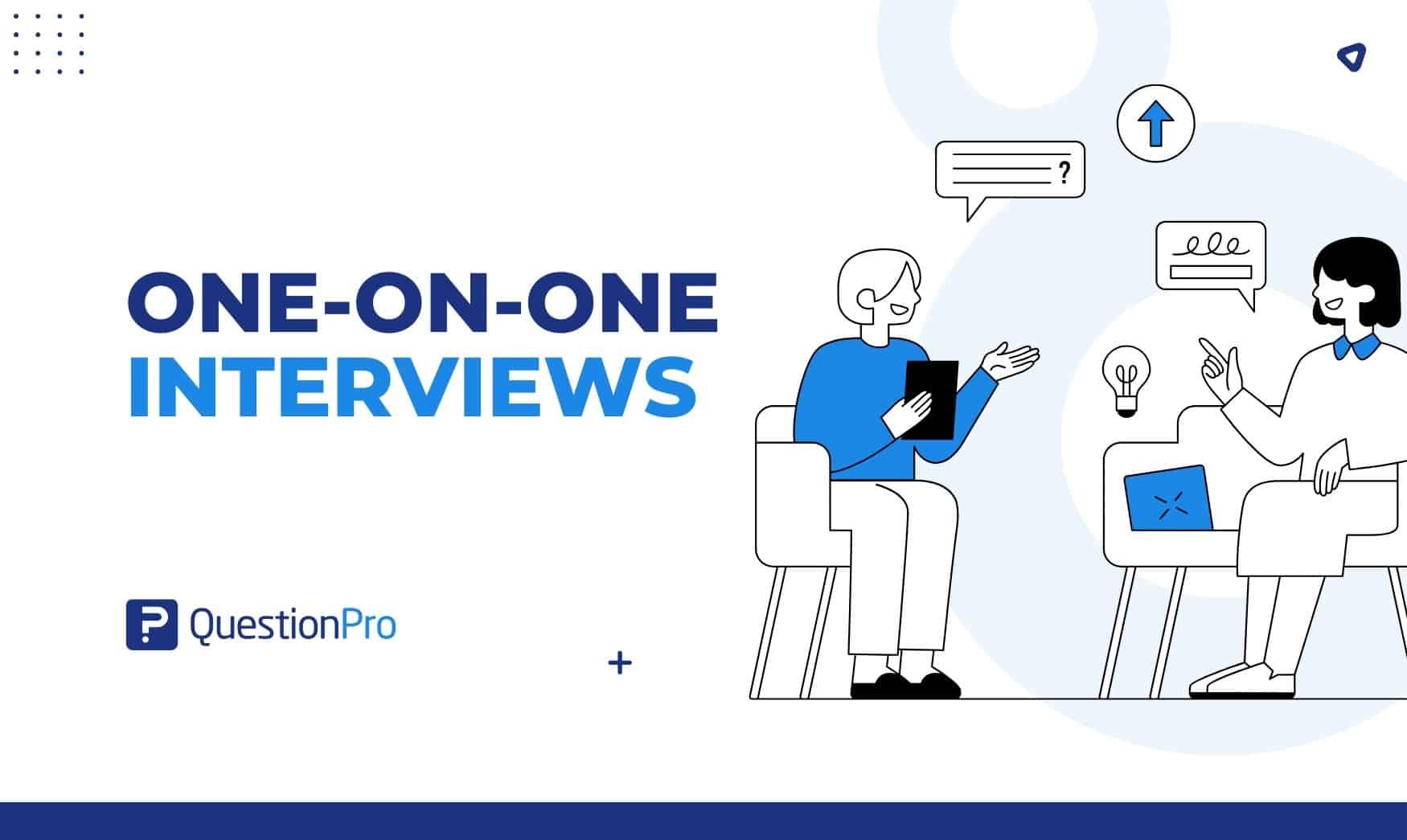
Conducting Effective Interviews to Find the Right Fit
When it comes to hiring a WordPress eCommerce developer, the interview process is your golden opportunity to assess both technical skills and cultural fit.It’s essential to craft questions that not only evaluate their coding abilities but also determine how well they can integrate into your team’s dynamic. Here are some strategies to ensure your interviews are as effective as possible:
- Start with Behavioral Questions: Ask candidates to provide examples of past projects they’ve worked on. This allows you to gauge their real-world experience and problem-solving skills.
- Incorporate Technical Assessments: Design a practical test that mimics tasks they would encounter in the role. This could involve troubleshooting a live site or building a simple eCommerce feature.
- Discuss Their Approach to Best Practices: Query how they keep up with wordpress updates, security measures, and optimization strategies. Their answers can reveal their commitment to quality and ongoing learning.
It’s equally crucial to evaluate how well the candidate aligns with your company’s values. During the interview, observe their communication style and enthusiasm.Consider asking questions such as:
| Question | What to Look For |
|---|---|
| How do you handle feedback? | Openness to constructive criticism and a willingness to improve. |
| What motivates you in a project? | A passion for problem-solving and pride in their work. |
| How do you prioritize tasks in a project? | Ability to manage time efficiently and focus on critical tasks. |
don’t underestimate the power of a two-way conversation. Encourage candidates to ask questions about your company culture, values, and the specifics of the projects they would be working on. this not only helps you assess their interest but also allows you to present your organization in the best light.Remember, a great hire is about more than just technical skills; it’s about finding someone who shares your vision and can contribute positively to your team.
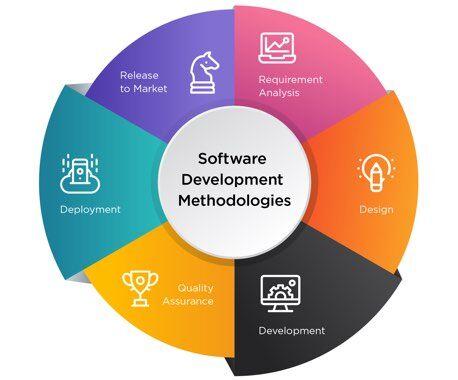
Assessing Development Methodologies and Best Practices
When hiring a WordPress eCommerce developer, it’s essential to evaluate their development methodologies and best practices to ensure they align with your business goals. The right developer not only brings technical skills but also an understanding of effective workflows that can enhance your project’s success.
Agile development is one methodology that has gained immense popularity in recent years. This approach promotes iterative progress through small, manageable increments. It allows for flexibility and responsiveness to change, which is vital in the rapidly evolving eCommerce sector. by hiring a developer familiar with Agile, you can expect:
- Frequent updates and opportunities for feedback.
- A focus on delivering value at each stage of development.
- Adaptation to market trends and customer needs as they arise.
Another crucial aspect is the developer’s knowledge of best practices. This includes understanding SEO fundamentals, optimizing site speed, and ensuring mobile responsiveness. A developer who prioritizes these elements can significantly enhance the user experience, which is crucial for eCommerce success. Here are some best practices to consider:
- Implementing clean and maintainable code.
- Using caching solutions to improve loading times.
- Ensuring accessibility standards are met for all users.
To help you assess potential candidates, consider creating a comparison table of their skills and experiences against your project requirements. Here’s a simple example:
| Candidate | Agile Experience | eCommerce Projects | SEO Knowledge |
|---|---|---|---|
| Jane Doe | 3 years | 5 | Advanced |
| john Smith | 1 year | 8 | Intermediate |
| emily White | 2 years | 3 | Advanced |
Lastly, communication skills cannot be overlooked. A developer who communicates effectively can help streamline the development process and ensure that your vision is realized accurately. During the interview, ask them about their preferred communication tools and how they handle project updates. This insight can reveal their commitment to transparency and collaboration.
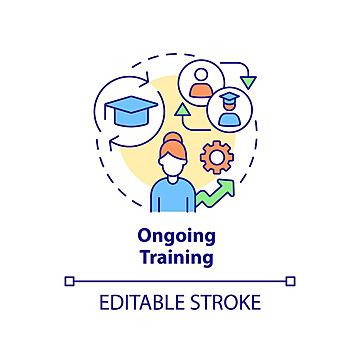
Ensuring Ongoing Support and Maintenance Post-Launch
Launching your WordPress eCommerce site is just the start of your journey. To keep your online store thriving, it’s essential to ensure that you have a robust support and maintenance plan in place. This is where hiring the right developer can make all the difference.A good developer will not only help you with the initial setup but will also be there to support you as your business grows.
Consider collaborating with a developer who offers ongoing maintenance services. This can include:
- regular updates: Keeping your WordPress core, themes, and plugins updated to ensure security and performance.
- Security Monitoring: Implementing measures to protect your site from vulnerabilities and cyber threats.
- Performance Optimization: Regular checks to ensure your website loads quickly and performs efficiently under various traffic conditions.
- Backup Solutions: Setting up automated backups to safeguard your data.
Another vital aspect of post-launch support is troubleshooting and customer service. Your developer should be responsive to any issues that arise, whether they are operational problems or a simple need for guidance.Prompt support can help minimize downtime,which is crucial for an online store. Consider asking potential developers about their support response times and availability.
Additionally, look for developers who can provide training for you and your team. A well-informed team can handle day-to-day operations more effectively, reducing the reliance on external support. Training sessions might cover:
- Managing Products: How to add, edit, and remove products efficiently.
- Handling Orders: Steps to process orders and manage customer queries.
- Using Plugins: Best practices for utilizing eCommerce plugins to enhance site functionality.
When considering potential developers, it’s also wise to evaluate their long-term commitment to your success. A developer who is invested in your project will proactively offer suggestions for improvements and innovations, helping you stay ahead of trends. A solid partnership can foster a collaborative environment where your business can evolve seamlessly.
Lastly, don’t overlook the importance of a clear contract that outlines ongoing support terms. This contract should specify the scope of maintenance services, response times for issues, and any additional costs for extra support. This transparency will provide peace of mind as you scale your eCommerce business.
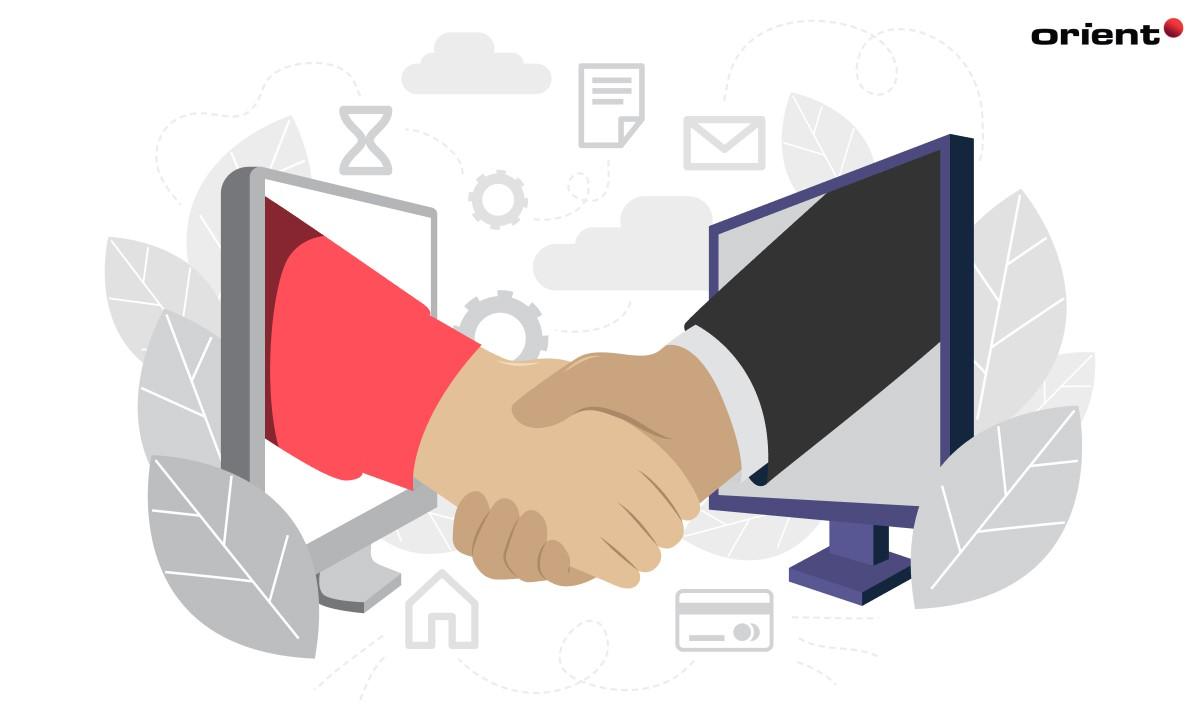
Fostering a Long-Term Partnership with Your Developer
Building a enduring relationship with your WordPress eCommerce developer is crucial for the ongoing success of your online business. Consider this partnership as an investment in your brand’s future; the stronger the relationship, the better the results you’ll see over time.Here are some strategies to help foster that long-term bond:
- open Communication: Encourage regular check-ins and updates. Use tools like Slack, Trello, or even simple emails to maintain a flow of information. This keeps both parties aligned and allows for quick resolution of any issues that arise.
- Set clear Expectations: From the outset,lay down the groundwork regarding project timelines,deliverables,and budget constraints. This way, both you and your developer have a mutual understanding, minimizing misunderstandings later.
- Value Their Expertise: Your developer is an expert in their field. Trust their judgment and be open to suggestions. When you show that you value their insights, it creates a more collaborative environment.
Another essential aspect is to be prepared for evolution. The eCommerce landscape is constantly changing, and so should your strategies. By acknowledging that your website needs to grow and adapt, you encourage your developer to be more innovative and proactive.
Consider offering your developer opportunities for professional growth as well. This could include access to new technologies, training, or attending industry conferences. By investing in their development, you not only improve their skills but also show that you’re committed to the partnership.
always celebrate achievements, both big and small. Whether it’s a successful launch or a significant increase in sales, acknowledging these milestones fosters a positive atmosphere and reinforces the dedication both you and your developer have toward achieving common goals.
cultivating a long-term relationship with your WordPress eCommerce developer requires intentionality and commitment. Through open communication, mutual respect, and opportunities for growth, you can create a partnership that not only enhances your website’s performance but also contributes to the overall success of your business.

Final Thoughts on Making the Right Choice for Your eCommerce Success
choosing the right eCommerce developer is a critical step in ensuring your online business thrives. it’s not just about having a website; it’s about creating a platform that resonates with your brand and engages your audience. to make the best decision, consider the following factors:
- Experience and Portfolio: Review their past projects to gauge their expertise. Look for diversity in their portfolio that demonstrates their ability to handle different styles and functionalities.
- Technical Skills: Your developer should be proficient in PHP, HTML, CSS, and JavaScript. Familiarity with WooCommerce,Elementor,or other relevant plugins is also essential.
- Communication: Effective communication is vital. Ensure that they can articulate their ideas clearly and remain open to your suggestions.
- Support and Maintenance: Post-launch support can save you from potential headaches. Discuss their maintenance services and response time for any issues that may arise.
- Client References: Don’t hesitate to ask for testimonials or references. Speaking with previous clients can provide insight into their work ethic and reliability.
One of the biggest mistakes businesses make is hastily selecting a developer based on price alone. While budget is important, a cheaper option may lead to subpar results that could cost you more in the long run. Aim for a balance between cost and quality, as investing in a skilled developer will often yield a higher return.
Furthermore, consider the scope of your project. If your vision includes complex functionalities, ensuring your developer has experience in that area is paramount. A well-defined project scope will not only help you communicate your expectations but also assist the developer in providing accurate estimates and timelines.
Lastly, keep in mind that building a successful eCommerce site is an ongoing process. The right developer will not only help you launch your site but also be available for future enhancements and scalability as your business grows. Cultivating a good relationship with your developer can lead to a fruitful partnership, contributing to your long-term eCommerce success.
Frequently Asked Questions (FAQ)
Certainly! Here’s a Q&A section for the article titled “How to Hire the Best WordPress eCommerce Developer?” in a conversational and persuasive tone.
Q&A: How to Hire the Best WordPress eCommerce Developer
Q: Why should I invest in a WordPress eCommerce developer for my online store?
A: Great question! Investing in a skilled WordPress eCommerce developer can make all the difference in your online business. They’ll ensure your site is not only visually appealing but also user-friendly, secure, and optimized for conversions. Remember, a seamless shopping experience can significantly boost your sales and customer satisfaction!
Q: What qualifications should I look for in a WordPress eCommerce developer?
A: Look for a developer with a strong portfolio showcasing previous eCommerce projects. They should have expertise in WooCommerce (the most popular eCommerce plugin for WordPress) and a good understanding of web design principles. Bonus points if they’re familiar with SEO best practices and responsive design!
Q: How can I gauge a developer’s expertise?
A: Don’t hesitate to ask for references and check their previous work. A reliable developer will have a portfolio that not only showcases stunning websites but also highlights successful eCommerce functionalities. Consider reaching out to past clients to get insights into their experiences.
Q: Should I hire freelancers or an agency?
A: It depends on your needs! Freelancers can offer specialized skills frequently enough at a lower cost, but agencies usually provide a broader range of services and consistent support. If you’re looking for a comprehensive approach with ongoing maintenance, an agency might be the better bet.
Q: What questions should I ask during the interview process?
A: Excellent question! Here are a few must-ask questions:
- Can you walk me through your development process?
- How do you handle communication and project updates?
- What strategies do you use to optimize eCommerce sites for conversions?
- Can you share examples of how you’ve solved challenges in past projects?
These questions will help you gauge their expertise, communication style, and problem-solving abilities.
Q: How much should I expect to pay for a WordPress eCommerce developer?
A: Costs can vary widely based on experience, location, and project complexity. Typically, you might see rates ranging from $20 to $150 per hour. remember, choosing the cheapest option might save you money upfront, but investing a bit more in quality can lead to significant long-term benefits for your business.
Q: How can I ensure the developer understands my vision?
A: Clear communication is key! Share your ideas, goals, and any specific functionalities you envision for your site. A good developer will not only listen but also provide constructive feedback and suggestions. They should be as invested in your success as you are!
Q: What if I need ongoing support after my site goes live?
A: Make sure to discuss post-launch services before you hire! Many developers offer maintenance packages that include updates, troubleshooting, and support.Having someone who knows your site inside and out can save you time and stress down the line.
Q: Any final tips for hiring the right WordPress eCommerce developer?
A: Trust your instincts! Choose someone you feel comfortable communicating with and who understands your business goals. It’s a partnership, and you want to work with someone who genuinely cares about helping you succeed.
By asking these critically important questions and considering these factors, you’ll be well on your way to hiring the best WordPress eCommerce developer for your needs. Happy hiring!
In Retrospect
hiring the right WordPress eCommerce developer can make all the difference for your online business. It’s not just about finding someone with the right skills; it’s about finding a partner who understands your vision and can bring it to life. By following the tips we discussed—defining your needs, checking portfolios, asking the right questions, and considering cultural fit—you’ll be well on your way to assembling a talented team that can elevate your online store to the next level.
Remember, the investment you make in a skilled developer today will pay off in the long run with increased sales, enhanced user experience, and a brand that stands out in the crowded digital marketplace. So, take your time, do your research, and trust your instincts. When you find that perfect match, you’ll know it—and your eCommerce venture will thrive as a result. Happy hiring!

